Raleigh | Durham | Chapel Hill
August 21, 2024


Raleigh | Durham | Chapel Hill
August 21, 2024

Mayor Leo Williams has an ambitious vision for Durham. How far can his energy and big-tent style of governing take him— and how far does he want to go?
by Justin Laidlaw,
p. 8
6 Wake County Democrats are split over Raleigh City Council endorsements. BY JANE PORTER
8 Mayor Leo Williams is the Bull City's ringmaster, but corralling constituents under a big tent isn't always an easy task. BY JUSTIN LAIDLAW
12 How will third-party candidates impact Triangle elections this fall? BY
AVERY SLOAN
14 Duke sinologist Carlos Rojas is a translator of renowned Chinese writer Yan Lianke's words—and his warnings about the dangers of authoritarian regimes. BY GABRIEL BUMP
16 “Why does this event, which is rooted in sexism, racism, and classism, still exist?”asks Raleigh writer Mary Lambeth Moore on her new podcast, Reovering Debs, which takes along look at a strange tradition: North Carolina debutante balls BY ANDREA RICHARDS
CORRECTION There was a typo in our story about playwright Paul Green two weeks ago. Green was born on March 17, 1894, not 1948.
E M A D E T H I S
PUBLISHER
John Hurld
EDITORIAL
Editor-in-Chief
Jane Porter
Culture Editor
Sarah Edwards
Reporters
Chloe Courtney Bohl
Lena Geller
Justin Laidlaw
Chase Pellegrini de Paur
Contributors
Mariana Fabian, Desmera Gatewood, Spencer Griffith, Carr Harkrader, Matt Hartman, Tasso Hartzog, Brian Howe, Kyesha Jennings, Hannah Kaufman, Jordan Lawrence, Elim Lee, Glenn McDonald, Nick McGregor, Gabi Mendick, Cy Neff, Sam Overton, Shelbi Polk, Byron Woods, Barry Yeoman
Copy Editor Iza Wojciechowska
2 August 21, 2024 INDYweek.com
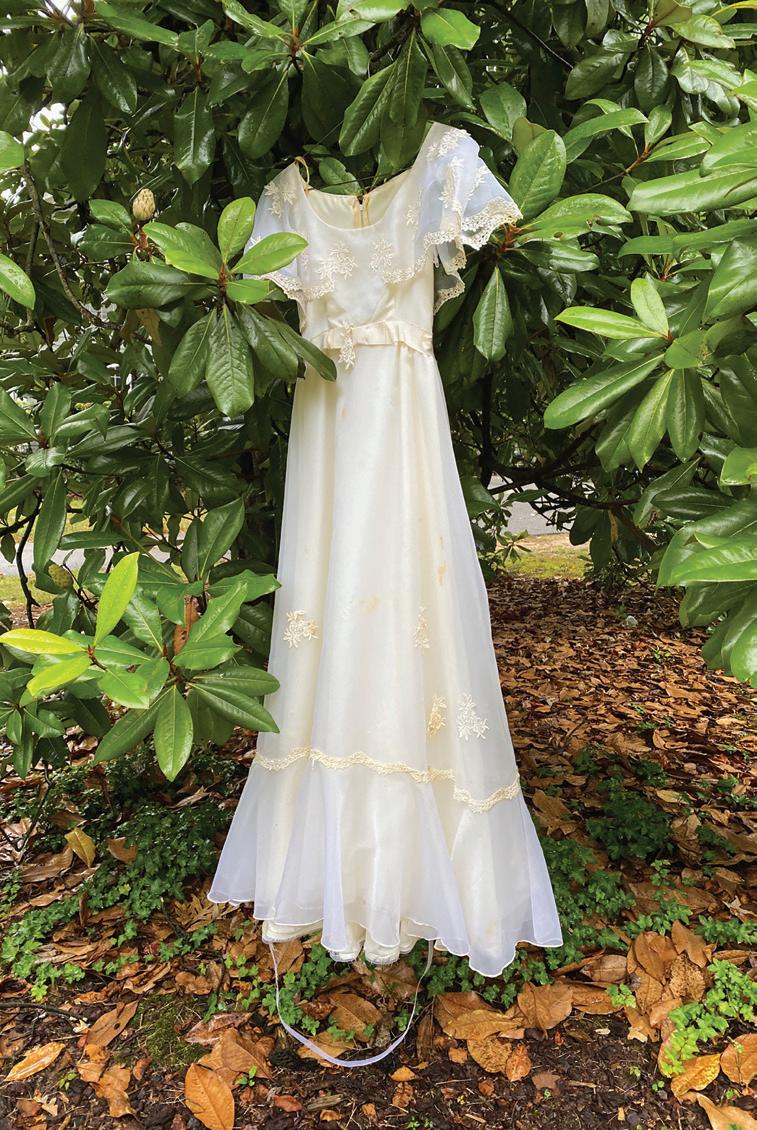
(See story on page 16) PHOTO
OF MARY
Interns
Matthew Junkroski
Mila Mascenik
Avery Sloan
CREATIVE
Creative Director
Nicole Pajor Moore
Graphic Designer
Ann Salman
Staff Photographer
Angelica Edwards
ADVERTISING
Publisher John Hurld
Director of Revenue
Mathias Marchington
Director of Operations
Chelsey Koch
CIRCULATION
Berry Media Group
MEMBERSHIP/ SUBSCRIPTIONS
John Hurld
Week | indyweek.com P.O. Box 1772 • Durham, N.C. 27702 919-666-7229 support@indyweek.com to email staff directly: first initial[no space]last name@indyweek.com
sales@indyweek.com 919-666-7229
be
For our paper two weeks ago, Mike MacMillan wrote about downtown Durham’s struggling small business community and what the city can do to make things better for business owners and residents. We heard from lots of readers and are excerpting some of their letters here:
From STEPHEN JANNING, via email:
I have lived in Downtown Durham for many years and certainly lament the forced closure of some of the early adopters that opened the door for the area becoming a destination for work/eat/play. This is a complex issue and I appreciated the analysis and perspective of this article
There is one obvious shortcoming of living in Downtown Durham that is always overlooked in these articles: the lack of full service grocery store reasonably reached on foot. Every time we need supplies, we have to get in a car. I’m sure I’m speaking for thousands here—it’s very frustrating to want to support a walkable neighborhood and not have the basics within reach. North Hills has it, Downtown Raleigh has it. Why don’t we?
From JOSH FULAN, via email:
I think I speak for many in downtown Durham when I say that we’re tired of surveys, we’re tired of focus groups, and we’re tired of hearing about “potential solutions.” We want to see progress! What is the City doing to make downtown better for small businesses and residents in 2024 or in 2025?
The problem is not that Durham lacks an adequately sized convention center. The problem is that life for a downtown Durham pedestrian is treacherous and uncomfortable. People are unlikely to stay and shop when the heat radiating off Durham’s sea of unshaded pavement tops 120 degrees. They are unlikely to cross the railroad tracks to visit another business when there is zero separation between the sidewalk and the road, with speeding vehicles missing them by mere inches. They’re unlikely to cross the five busy lanes of Roxboro Street, even though they’re interested in checking out that new jazz bar on the other side.
I understand that change doesn’t happen overnight, but there are a multitude of quick win solutions that the City has thus far failed to implement or even propose in a meaningful way. These include:
• Closing small, underutilized streets on weekends. The reclaimed space could be used for outdoor dining, street festivals, pedestrian plazas, cooling stations, etc.
• Invest more in urban forestry, especially in areas that can or do see significant foot traffic.
• Provide safe pedestrian railroad crossings that are separated from vehicle traffic.
• Force developers to provide a safe walking path for pedestrians when the sidewalk is closed due to construction. “Cross the street” or “go to the next street over” are not acceptable solutions.
• Allow and encourage more temporary road closures for events like the Streetery.
Without a doubt, bigger long-term changes are still needed. However, the City needs to show its small businesses and residents that it can and is taking immediate action. Without that, small businesses won’t have the support they need to stay afloat, and downtown risks losing more culture-defining small businesses than it already has.
And from ANSELMO LASTRA, via email:
First let me say that a few of the restaurants that closed should probably have closed even earlier. … That said, while there are still restaurants we like there, we have not been going downtown as much because of the difficult and expensive parking. I guess the plan is to entice visitors to a new convention center, but keep ignoring locals.

A hunger-free Bull City could exist, but the city government needs to join the fight.
BY COURTNEY SMITH backtalk@indyweek.com
At a recent food giveaway hosted by Communities in Partnership in East Durham, I worked with a small group of volunteers to distribute boxes of fresh produce, meat, and pantry goods. Residents lined up 45 minutes before the giveaway started, and we ran out of food within 20 minutes.
Among the community members we turned away were a family of eight, with kids ranging from infants to teenagers; a woman who recently found out she had stage 3 cancer and is on a fixed income; a woman who had lost her job and had very little left in her bank account to cover groceries; and a woman on medical leave with limited mobility from a surgery and who could not keep up with the rising cost of food.
I left feeling hopeless and frustrated that we couldn’t do more. We have seen an increase in the number of people seeking food assistance, and Durham is reaching a point where poorer residents are at a greater risk of going hungry because of the rapidly rising costs of living. With the rebirth of the city within the last few decades and more money flowing in, our most vulnerable communities are being left behind.
Food insecurity comes from intentional divestment from communities and from funding being stripped from programs that serve at-risk households. While Durham County has been putting funding into fighting food insecurity, the City of Durham has lagged behind and must do more. For residents caught in the cracks, they must deal with the consequences of a heavy focus on money being put toward development projects while an increasingly growing poor population is not considered in the expansion. Funding alone won’t ensure success, though. Overcoming food insecurity requires us to listen to the voices experiencing it. And while local community partners and organizations are working to combat the issue of hunger in our city, they
cannot do the work alone. There needs to be robust support from city and state government, the private sector, and the citizens of our community.
The Double Bucks Program is a great example of how the broader community has worked together to fight food insecurity. Double Bucks operates by matching the purchases made by people who use Supplemental Nutrition Assistance Program (SNAP) or EBT benefits at markets, effectively doubling their purchasing power. For every $10 spent in SNAP/EBT funds, an additional $10 is contributed by the program at various farmers’ markets located in Durham and Orange Counties. Since the program’s establishment in 2013, the response from the community has been a success, reaching people who otherwise would be unable to afford local and fresh food, while also investing in the local economy. When I was vending at farmers’ markets in Durham, Chapel Hill, and Carrboro, we had people who utilized Double Bucks at the stand, including a young family of four who would often buy food from us to help feed their kids; an elderly woman on a fixed income, who was always happy to buy fresh items weekly from vendors; and so many others who were able to purchase healthy food from the markets for their meals.
By 2023, nearly 700 unique families had shopped with their SNAP/EBT cards at participating farmers’ markets. The Double Bucks Program relies on funding from local governments, nonprofits, grants, and philanthropic entities; currently, funding is projected to run out in 2025. (The City of Durham, which holds approximately 85 percent of the population of Durham County, has put $0 aside for the Double Bucks Program.) Orange County will see its funding end in September; it is currently raising $30,000 to continue the program for over 500 families who use Double Bucks

at local markets in the county. Such a vital program could see a reduction in offerings to the community or, worst-case scenario, end altogether.
But the challenge of food insecurity isn’t unique to Durham. The number of families across the United States who are food insecure or on the brink of becoming food insecure is rising. Our federal government spent $89.3 billion in 2020 to combat food insecurity, with SNAP being the largest program receiving federal funding. In response to COVID-19, spending on SNAP increased by 15 percent as part of the American Rescue Plan Act, which significantly reduced the number of food-insecure households until funding ended in September 2021. Investments at the federal, state, and local levels are needed to tackle this issue.
With state officials working to defund
programs that combat inequities and with federal assistance running out, the food insecurity issue in Durham is getting worse. Our response as a city should be to combat hunger at the source. When I think back on the people who waited for food at the giveaway, I wonder: If we as a city really believed that food is a human right, would we be in the same position we are in now? Durham could be a place where no one has to worry about accessing and affording food. Programs like Double Bucks are a crucial part of the solution to ensure we are a vibrant, prosperous community where no one goes hungry. It’s time for our local government to recognize this crucial point and make programs like Double Bucks a priority. W

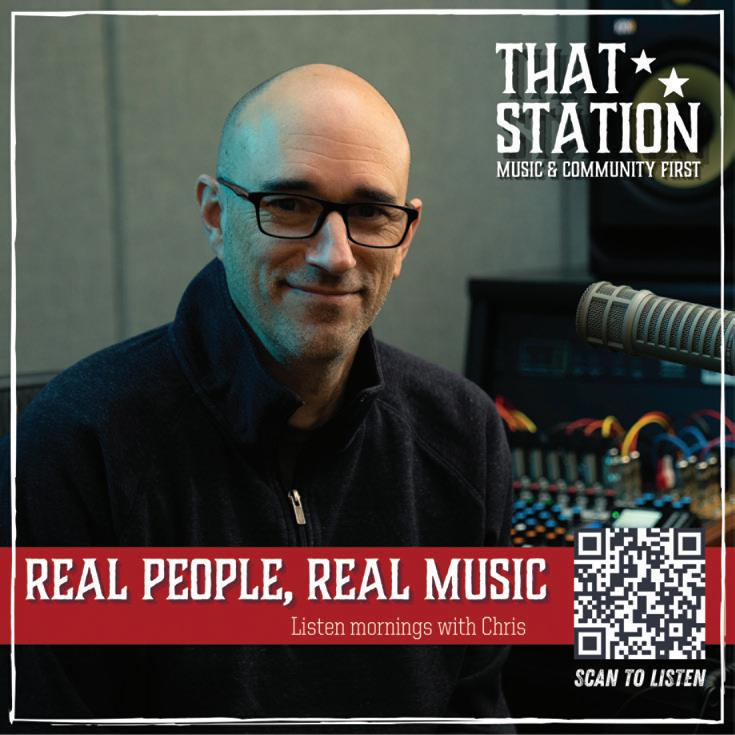

Some Wake County Democrats are warning the local party against endorsing in Raleigh City Council races with more than one Democrat running.
BY JANE PORTER jporter@indyweek.com

Prominent Wake County Democrats and the Wake County chapter of the North Carolina Democratic Party’s Jewish caucus are urging the larger county party not to make endorsements in this year’s nonpartisan Raleigh City Council races.
All city council seats and the mayor’s seat are up for election in November, and in several races, multiple Democrats are in the running. Since 2011, the party has endorsed one of those candidates. But this year, some are calling for the party not to weigh in, and candidates’ positions on the Israel-Hamas conflict appear to be the main reason.
In a letter sent to Wake County Democratic Party chair Kevyn Creech and executive director Wesley Knott on Friday, more than 20 local Democrats, including several former members of the Raleigh City Council, encouraged the party “not to endorse between Democrats in local elections in Raleigh this fall.”
“When [endorsements were] done in 2022, it created a lot of divisions within the Democratic Party that have taken two years to repair and aren’t quite there yet,” the letter states. “Democrats are divided over housing issues and the Israel/Palestine conflict and we think the voters should decide between Democratic candidates, not the Executive Council, who may be less aware of or focused on important Raleigh-specific governance issues. These issues are complicated and hard and hopefully won’t last forever.”
The letter says endorsements between Democrats could impact both the city and the party “in a divisive way.”
“We want the Wake Dems to stay united, working
together on the State and National elections, and not let the local issues divide us,” the letter continues.
In response, Creech notes that the letter’s signatories are all Raleigh residents, and the races in which the party endorses affect the whole county.
“The problem with this is that they are not thinking beyond Raleigh,” Creech says. “If we don’t do what we need to do, not only is it impossible to keep our school board sane, and that affects everybody, but also it doesn’t allow for people without huge connections and lots of dollars to have a shot at running.”
The local branch of the state Democratic Party’s Jewish caucus has also encouraged its members to ask the party not to endorse.
In an email the INDY viewed, Linda Brinkley, the president of the caucus chapter, and Lynn Schwartz, its vice president, urged fellow members to write to the county party’s executive council as soon as possible “and ask them not to endorse specific Democratic candidates when two or more qualified Democrats are running in nonpartisan elections.”
“In 2022, when the [Wake Democrats] endorsed a specific candidate in what was supposed to be a non-partisan race, many Democratic voters were alienated,” a document attached to the email states. Brinkley and Schwartz asked recipients to copy and paste the document’s language, add their own name, and send it to the Wake County Democratic Party’s executive committee members.
Voters “felt that the role of the county party was to support all Democrats running and not choose sides,” the document reads. “This caused a great deal of division
and stopped many people from donating their money and time. … We cannot afford to alienate ANY Democratic voters in 2024—too much is at stake therefore we must unite in order to elect Democrats up and down the ballot.”
But the county Jewish caucus’s concerns extend beyond the principle of endorsing one Democrat over another.
The email notes that the county party will decide whether to re-endorse District A incumbent Mary Black and District E incumbent Christina Jones, both of whom the party endorsed in 2022. Both candidates “urged the City Council to adopt a one-sided, anti-Israel resolution after October 7,” the email states.
Eric Solomon is a member of the Wake chapter of the Jewish caucus and leads Raleigh’s Beth Meyer Synagogue, which is located in District A, home to Raleigh’s largest Jewish population. As a lifelong Democrat, Solomon says he wants to see his party do well up and down the ballot, including in the governor’s race where attorney general Josh Stein would be the first Jewish governor of North Carolina if elected this fall.
But as a District A resident, Solomon says, he has concerns about Black’s past social media posts about the Gaza conflict, which he characterizes as going “beyond simple criticism of Israel” and that have “leaned into antisemitic tropes.”
“[It’s] her focus on this issue, her unwillingness to speak with me and the Jewish community, certainly in public sessions but only somewhat begrudgingly in private sessions,” Solomon says. “The fact that she held community events on the holiday Hanukkah, for example, when most
of the Jews in my community could not come out.”
Black was a staunch advocate for the council to adopt a ceasefire resolution last winter. In March, after the council failed to reach a consensus on a resolution and instead released a public statement calling for peace, Black unexpectedly introduced a new Gaza ceasefire resolution. Her resolution ultimately failed on a 4–4 vote.
Black denies intentionally planning an event during Hanukkah and says she has tried to engage with Solomon without success. She notes that she has never posted about foreign issues on city- or campaign-related social media.
“The ceasefire resolution that was motioned forward was drafted with Jewish community members and organizations like Jewish Voice for Peace, who continue to support me, my voice, and my re-election for city council,” Black wrote in an email to the INDY. “This belief that I must labor, perform, and keep someone’s worldview comfortable at all times even when it harms me is steeped in white supremacy. … It is my hope that the party sees through these baseless attempts to malign and attack yet another Black elected official who has spoken for a ceasefire like we saw with Jamaal Brown and Cori Bush.”
In a statement, council member Jones said she hopes voters, and the party, will consider the work she has done in her first term in its entirety.
“I’ve worked diligently on issues like affordable housing, community engagement, and worker’s rights,” Jones wrote in an email to the INDY. “Values that the Democratic Party holds in high regard. … While some may disagree with me on varying issues, I think we are more alike than we are different. The work I have done has had a tremendous impact on Raleigh residents and I hope that is given full consideration by Raleigh voters and the Wake County Democratic Party.”
Conner Taylor, the second vice chair of the NC Democratic Party Jewish Caucus, says its members are concerned that the city council has become a source of division in Raleigh.
“There has been a lot of discussion of controversial foreign policy issues at the city council, and that’s been heartbreaking to watch because it’s so divisive and the city council has no ability to affect positive change in those areas,” Taylor says. “Given that the city council is already a source of division, we’re concerned about the idea that the Wake County party would be endorsing one Democrat against another Democrat, because that would take an already divisive atmosphere and add more
division to it. That’s the wrong move in an election year.”
The Wake County Democratic Party started regularly endorsing candidates in nonpartisan local races more than a decade ago, according to Creech, after Republican donors poured money into Board of Education races in 2009 that led to a Tea Party takeover of the board.
“The Wake County Public School System (WCPSS) became the butt of national jokes due to the overtly partisan rhetoric and policies enacted by the then School Board,” states a Wake Dems nonpartisan endorsement explainer. “WCPSS also nearly lost accreditation.”
But the party’s endorsements in nonpartisan races have often been controversial.
In 2022, the party endorsed mayoral challenger Terrance Ruth over incumbent Mary-Ann Baldwin. Baldwin ultimately won, but the endorsement likely helped Ruth garner 41 percent of the vote. It was also the first year city council elections were held during a midterm election rather than in an odd-numbered year, drawing three times as many voters than in previous years. Candidates that the Wake Democrats endorsed did well, including four millennial newcomers who were elected to the council.
The party didn’t endorse in the 2019 mayoral race (though it did endorse in District E), but its 2017 endorsement of Democrat Charles Francis over unaffiliated incumbent mayor Nancy McFarlane rubbed some of the popular mayor’s supporters the wrong way.
Creech says the party has “an extremely normative, rigorous process” in making its endorsement decisions. All candidates who want to be considered are invited to a group interview and asked to complete a questionnaire that the party then publishes. The party’s 11-member executive council is made up of leaders elected by the convention or county executive committee, as well as a treasurer appointed by the party chair, and deliberates and ultimately decides on the endorsements. Once the council makes its decisions, endorsed candidates are asked to sign a document outlining expectations of them as both a candidate and an elected official.
Creech says she does not view the party’s endorsement of one Democrat over another as divisive or alienating to voters and that it shouldn’t discourage people from voting in races higher up the ballot.
“That right there makes zero sense,” she says. “What happens in a bottom-of-thebarrel municipal district election has nothing to do with what happens at the top.” W

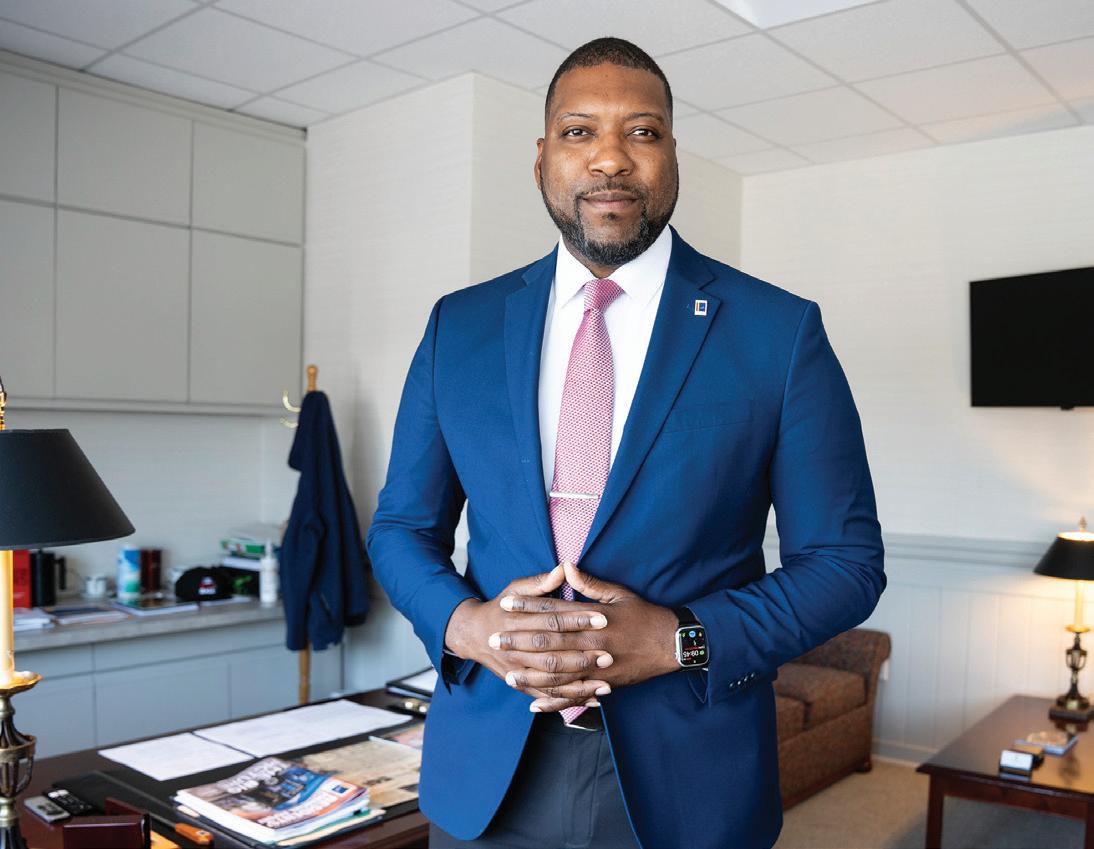
Halfway through his first year as mayor, Leo Williams has an ambitious vision for Durham, a growing list of policy wins, and more than a few discontented constituents. How far can his energy and egalitarian approach take him—and how far does he want to go?
BY JUSTIN LAIDLAW jlaidlaw@indyweek.com
eonardo “Leo” Williams stood tall on the stage inside Fletcher Hall at the historic Carolina Theatre, preparing to give his first State of the City address as the newly elected mayor of Durham. The Sound Machine, North Carolina Central University’s marching band, filled the walkways and flanked the mayor as a large screen cycled through photos of Durham life.
Williams’s hour-long speech was teeming with spectacle, distinguishing his address from those his predecessors delivered inside city hall.
“I charge you all to be bold in your vision for this community and seek out opportunities to be involved in the work to make the American Dream Durham’s reality,” Williams implored the crowd during his April address.
Williams, 43, is one of the youngest mayors in the city’s history. As a former NCCU drum major and Southern High School band director, he knows how to put on a show. While his predecessor, retired judge Elaine O’Neal, mostly stayed out of the public eye,
Williams, a towering 6’4”, is easily spotted bouncing between city hall meetings, the restaurants he manages with his wife, community events, and political rallies and, occasionally, shredding on a skateboard in the middle of CCB Plaza.
Last fall, Williams captured nearly twothirds of the vote, running as a charismatic business leader ready to take on the urgent challenge of putting Durham back on course. His big-tent approach to coalition building earned him endorsements across the political spectrum, from the progressive People’s Alliance to the moderate Durham Committee on the Affairs of Black People and Friends of Durham PACs.
But actions speak louder than words. Nine months into his tenure, Williams has a tangible record on housing, transit, infrastructure, and the economy. Now, his constituents are looking for delivery on his most ambitious promises: revitalizing downtown, improving public safety, and procuring more affordable housing.
With pressing issues and a need for detailed policy considerations on the table, can Williams’s enthusiasm and egalitarian approach to politics be enough to launch Durham’s next era?
Williams, like many who plant roots here, came to the Bull City for an education. He grew up with his mom and three younger siblings in rural Halifax County, where farming and other blue-collar industries still dominated the economy. College was one of the few tickets out.
Williams’s mother, Yolanda Bailey, inspired him to pursue a degree in teaching. She had served on the board of the North Carolina Teachers Association, the predecessor to what’s commonly thought of as the statewide teachers’ union, the North Carolina Association of Educators (NCAE). Bailey taught in Halifax and Nash County schools for 44 years, taking her son on work trips to witness community activism firsthand.
“She was a leader,” Williams recalls. “Everybody around her, they were educators. It was a village, and I was the baby of the conference. I remember it vividly, just being around them.”
Williams arrived at NCCU in 1999, where he majored in music education and educa-
tion psychology and was recruited to join the marching band.
Williams met Zweli Moyo on campus during their freshman year. She had come from Zimbabwe to study hospitality and tourism, and the two became fast friends. They bonded over their love for food—Zweli cooked meals packed with spice and flavor that captivated Williams. She says his commitment to service kept him constantly busy.
“When I met him, his life revolved around social activities and being actively involved in whatever he was doing, like band or youth camp,” she says. “He took it so seriously and made it a top priority.”
But the two went their separate ways after college, her to various Triangle restaurants and Williams to public education, first as a high school classroom teacher and band director. Williams joined the Durham Association of Educators (DAE) and served the board from 2008 to 2010. While he describes himself as a committed Democrat, Williams says he registered as an independent during that time so that Republicans “would pick up my calls.”
In 2017, the Republican-led General Assembly proposed converting two Durham public schools, Glenn Elementary and Lakewood Elementary, into charters through what became known as the Innovative School District (ISD). Williams was working as an education consultant at the time, and his good friend Terrance Ruth, a professor of social work at NC State University and Raleigh mayoral candidate, recruited him to
the ISD project.
Members of NCAE considered the plan a nonstarter, but, Williams says, someone in Governor Roy Cooper’s office told him that the cabinet was working with bipartisan members of the General Assembly to “pull out the good parts” and provide increased flexibility for public school principals. This excited Williams: “That was my whole criticism ... Why is it that charter schools and private schools have all the flexibility, but our public school administrators don’t?”
But it soon became clear to Williams that Republicans were using the initiative to orchestrate a takeover of public schools. Williams says he sounded the alarm to the DAE.
“This is not what was advertised,” says Williams. “This is not some feel-good, try and support principals. This is a takeover.”
Williams’s own reputation as a champion of public schools was on the line. At a community meeting, Williams says NCAE leadership singled him out as the “architect of the charter school takeover.” While he eventually resigned from the project, his involvement burned bridges with some in the education space.
Williams says he’s managed to rebuild some of them in the years since.
“Leo learns from his mistakes,” says Michelle Burton, a former school board member and the president of DAE at the time. “I like that about him.”
Other developments were also pulling him away from education. A chance
encounter with Zweli’s sister, Tiny, at the gym had brought them back together more than a decade after graduation. After Tiny reconnected them, Williams wasted little time courting Zweli.
“We connected that day for a five-minute conversation that turned into a seven-hour conversation,” Williams says. “I called everybody I was dating at the time and said, you know, it’s just not going to work. I just met my wife.”
The couple married in 2015, and Williams became stepfather to her son, Izaiah. Williams convinced his new wife to share her culinary gifts; three years later, they opened Zweli’s Kitchen, the country’s first Zimbabwean restaurant.
Zweli’s separated itself from other Durham restaurants with its unique cuisine and location in a strip mall out of downtown.
When momentum slowed with the COVID-19 pandemic, Williams and others formed the Durham Small Business Coalition to call on the city to do more for business owners in crisis.
“I’m like, ‘What are these politicians doing?’” Williams says. “I was pissed. I cannot see another business close, because I know what we went through to open ours. I was like, ‘Literally, dreams are dying right now, and there’s a way of doing it better.’”
Still, the Williamses found ways to make their business work during the COVID shutdown—which led to an invite from the Biden campaign to be special guests at the
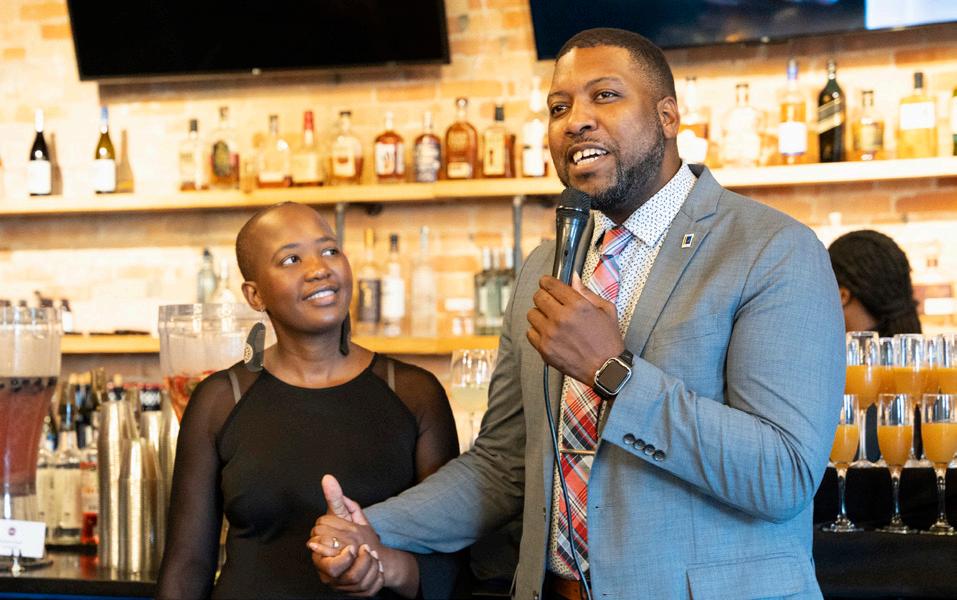
October 2020 presidential debate. Williams says meeting Biden that night made him a devout supporter. It also marked a convergence of his two worlds—business and politics.
Williams came into local politics as a relative unknown.
Former mayor and INDY founder Steve Schewel convinced Williams to consider local government in 2020, when a seat on the city council opened up that spring after Vernetta Alston departed to join the General Assembly. Williams submitted his application, but the city council ultimately appointed Pierce Freelon, a musician and educator from a prominent Durham family, to fill Alston’s seat.
But the process gave Williams a taste for local governance. The next year, he ran for the Ward 3 city council seat as a voice for small businesses but says he only wanted to serve for a short time.
“I only ran for council because of what I was going through as a small business owner,” he says. “I always intended to serve one term, support small businesses, and get out of the way.”
The DAE endorsed his opponent, community organizer AJ Williams; Burton says some members still questioned whether he’d look out for public schools.
After conversations with Leo Williams, Burton says, she personally felt he had been doing what he ultimately thought was best for students at the time.
“People at their core really want children to have a great education, to grow up, to live to their fullest potential,” Burton says. Williams’s city council run introduced him to Durham’s unique system of political PACs and alliances.
“I did not look at it as political. I looked at it as a service,” he says. “I had to be navigated through the political process.”
He ultimately won by fewer than 1,000 votes.
In his first term, Williams came across as a peacekeeper and go-between for the increasingly fractured council, particularly in the waning months of O’Neal’s tenure amid extortion allegations, a verbal and allegedly physical confrontation between council members, and a growing chasm on housing policy.
But the disarray within the council was eroding his patience.
“I wrote a handwritten resignation letter and one of the custodians actually ripped it up,” Williams says. “I was gonna submit my letter and just leave the council because
“My communication strategy is being accessible, honest, and transparent. We should be able to talk about anything.”
there was so much fighting and arguing.”
When O’Neal announced she would not seek reelection in June 2023, signs pointed to Mark-Anthony Middleton, the mayor pro tem, as a natural successor.
“It was a really hard two years to sit through,” Williams says. “So I was constantly in Middleton’s ear, saying, ‘You need to run, you need to run.’”
Candidates started to enter the race, but when no sitting council member announced a run, people started looking to Williams.
“I started hearing, ‘Leo, you just need to run for mayor,’” Williams says. “I’m like, ‘No, absolutely not. Do you see how folks are acting on this council now? You see how people in the community are acting? Do you think I have time for that?’”
In July 2023, state senator Mike Woodard announced his plans to run for mayor. And in late July, council member DeDreana Freeman announced she would run. With the clock ticking on the filing deadline, Schewel invited Williams over and made a final appeal. Williams announced two days later.
In a crowded field, Williams separated himself by simply having less baggage than the other two candidates.
Freeman’s alleged altercation and recent votes had created a schism with some in the city’s progressive faction, and political rivals characterized her campaign as a continuation of a dysfunctional administration.
While Woodard had represented Durham in the state senate for 12 years and as a council member before that, his willingness
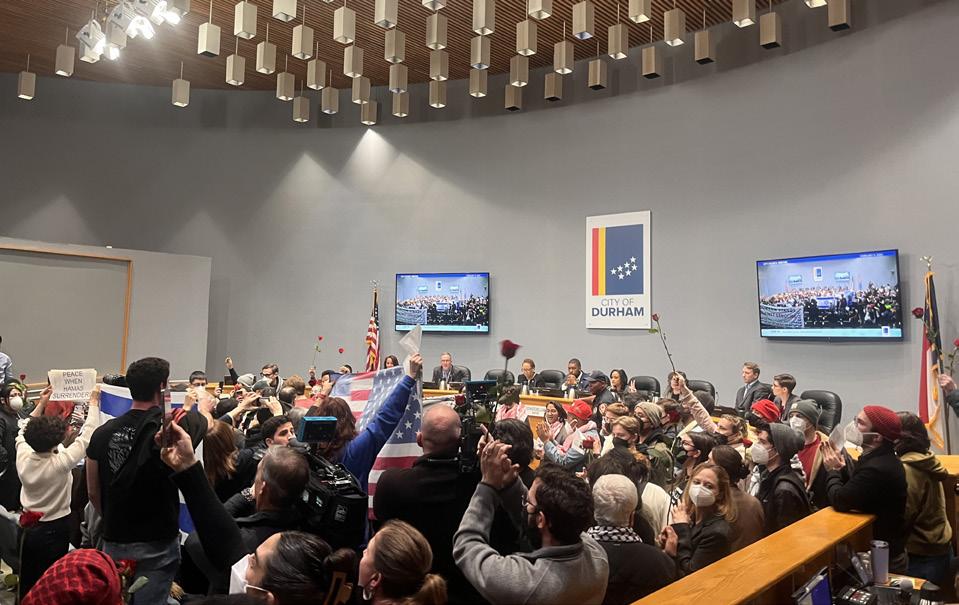
to work with Republicans in an increasingly polarized political environment had soured enough folks to dampen his chances.
Still, Williams had his own limitations. Rural county residents and environmental advocates were displeased with his votes for development. And solid waste workers and some other city employees held Williams responsible for a 2023 budget that did not include requested raises.
Williams presented as cool, calm, and collected—a candidate who was open-minded and pragmatic. That earned him endorsements from a broad spectrum of political organizations, including from Durham’s most influential PACs, the People’s Alliance and the Committee on the Affairs of Black People, a feat that’s almost unheard of in Durham politics. He ended up winning with 63 percent of the vote.
Two months into Williams’s term, a mass of protesters poured into city hall. Quay Weston, a Durham resident, delivered remarks connecting gentrification and displacement in Durham to displacement in Gaza that set off a 30-minute-long demonstration where protesters sang and left roses at the foot of the dais as police huddled in front of the city council.
“We are not only in a housing crisis but also in a crisis when it comes to our priorities,” Weston told the crowd. “As we wit-
ness increased housing insecurity and displacement of Durham residents, it must be connected to the displacement of Palestinian people through genocidal actions that are being funded by our tax dollars.”
On February 19, Williams was one of two council members to vote against adopting a ceasefire resolution, putting his relationship with Durham’s young progressive activists in question.
Weston says leaders like Williams “become this brand and this persona, but in their decisions, they are often opposed to the work that’s happening on the ground with grassroots organizations.”
The protests led to more stringent administration of the rules and procedures in city hall—limiting the time to speak at public hearings, restricting the number of attendees per the building fire code, and keeping remarks from residents and colleagues germane to the topic, all in an effort to cut down on bloated meeting times. Weston and others see this shift in policy as an ambition-driven show of strength on Williams’s part.
But restoring order to the city council was one of the keystones of Williams’s mayoral campaign.
“We had a work session that started at 1 p.m.,” Williams says one day in July. “We got out at 7:30 p.m. Monday night. We started at 7 p.m. [another night], we got out at 1:30 in the morning. No business owner in their right mind is going to want to be a part of that. I’m not in my right mind.”
Williams says meeting procedures are likely to get even stricter as the council returns after the summer recess. It’s just one of the ways Williams conducts “the people’s business,” as former mayor O’Neal often called it, in stark contrast to his predecessor.
Williams has been an outspoken proponent of growth, and his votes follow suit. Williams and some others on council say the housing shortage is too substantial for them to say no to new development.
But many residents aren’t sold. More than any other issue, they come to city hall to condemn approval of thousands of housing units, much of it in southeast Durham.
The tension led to a member of the planning commission resigning in early June over what he described as being “dismissed, at times ignored, and even denigrated.”
Brett Stargell, a local political consultant, led a training to recruit and support candidates that Williams attended in 2020. Stargell says Williams’s votes on development make sense in the context of a growing city, even as state laws bind leaders when it comes to implementing progressive property taxes and regulating growth.
“We want to continue to pay our city workers at a level that keeps up with inflation, and continue to fund a lot of the programs designed to reduce violence, alleviate poverty,” Stargell says. “There’s already a lot of tension within our budget and questions about sustainability.”
Despite these differences, Williams says
there is little ill will between him and his constituents.
“We don’t hate each other,” Williams says. “They may hate my votes, and it may be a little annoying that they always come and say the same thing. But I love those folks because I know we share a passion for this community.”
“My communication strategy is being accessible, honest, and transparent,” he says. “We should be able to talk about anything.”
Williams is certainly a Democrat of the more moderate variety, and his voting pattern doesn’t easily track along Durham’s more left-leaning politics.
In addition to the no-vote on the ceasefire resolution, Williams backed extending the city’s use of the ShotSpotter technology, votes that alienated Durham’s progressives, many of whom had campaigned for Williams and endorsed him. Former city council member Jillian Johnson says, to some degree, that’s not unexpected.
“I don’t think the majority of people vote based on a consistent political ideology or a coherent political strategy,” Johnson says. “Elections tend to be more about personality and familiarity. And so there’s this interesting paradox where the skills that are required to win an election are not the same skills that are required to be a good elected official.”
For Williams, the skills that propelled him to the mayor’s office are what make up his governing philosophy: everyone is invited into the tent. He used the ceasefire vote as an example, explaining that, while he is personally in favor of a ceasefire res-
olution, he voted against one because he wanted the record to reflect that the city’s residents were divided on the topic.
“My first priority is to lead the city,” Williams says. “I wanted to vote for the ceasefire, but I did not because I needed that vote to be broken, to represent the voice of this community, which was also broken. It was split … but what you cannot deny is everybody had a voice.”
While this “big-tent” style has lost Williams a few fans, it has also led to compromises and significant policy victories. In June, the council unanimously passed the 2024–25 budget without much blowback.
“I don’t think this budget reflects the budget that any individual up here would have created,” said city councilor Nate Baker, “but I do think that it does a phenomenal job of taking a lot of complicated views up here and creating one single document that reflects the values of all of us.”
Durham is governed by a council-manager, or “weak” mayor system; the mayor has no more voting power than anyone else on council. But residents tend to think you’re either an expert in everything and can fix all their problems or you’re clueless and can’t be trusted. There’s almost no middle ground.
Balancing those expectations separates the job of mayor from that of their city council counterparts, says Schewel.
“Even though you’re the first among equals in terms of voting, you still have
a lot of stuff that comes to you that not everyone gets, whether it be all the appointments that you’ve got to make, or just because you’re mayor and people know it,” he says. “My email traffic tripled when I was mayor. There’s just a lot of external demands.”
In essence, the mayor serves as the city’s “chief marketing officer,” and Williams has grabbed that title by the horns. Every day he’s out and about, trying to get more residents to buy into his plans, which include big capital projects like a new convention center and “affordable living”—making housing, transportation, and other essential needs more accessible.
“He is showing up in a variety of different places and carrying [his] message,” says Nicole Thompson, president and CEO of the nonprofit advocacy group Downtown Durham, Inc. “He’s not just in one place ... He’s going where the community is.”
Nor is Williams bound by the city limits. He is the first in line to welcome state and federal officials to the Triangle and rarely misses an opportunity to travel outside the state. In June, he rolled out the red carpet for President Biden when he landed at RDU after a disastrous debate, facilitating a spontaneous dance party on the tarmac in the early hours of the morning. The day Biden announced he was stepping down as the Democratic nominee, Williams was co-hosting an event with U.S. Rep. Ro Khanna at Ponysaurus.
This commitment isn’t only for the photo ops. It’s arguably paid off with additional funding for consequential projects in Durham, including millions of dollars for
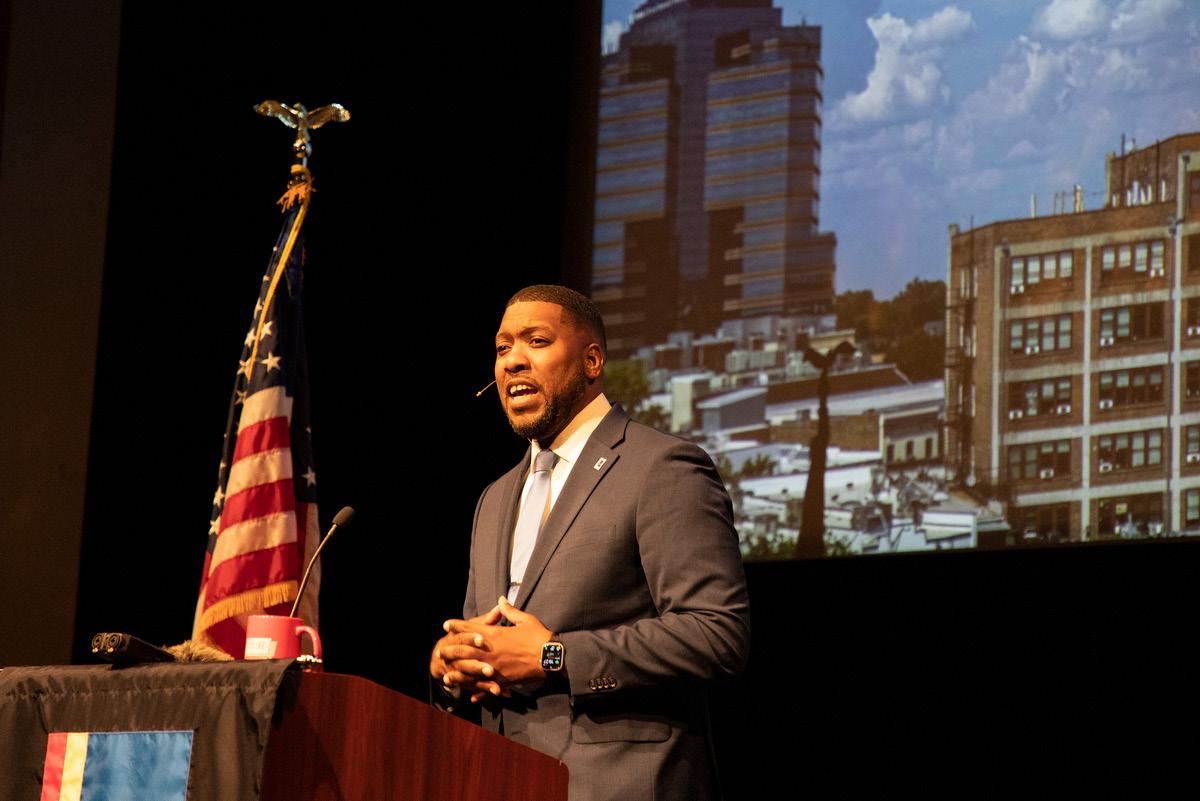
transit and infrastructure.
Still, what some might see as promoting Durham, others interpret as being self-interested or leveraging his position for his own gain. When gubernatorial candidate Josh Stein hosted an event at Zweli’s Kitchen in May, Williams made an appearance before leaving to preside over a council meeting. Even an innocuous fundraising initiative—selling “Durham is Dope” T-shirts to raise money for a youth mentoring program—rubbed some the wrong way.
While Williams has said he has no intention to seek higher office, his routine references to his “friends in Washington” give the impression that Durham might not be his final destination. But with running two restaurants and Izaiah starting his freshman year at Duke, Williams will continue to call the Bull City home as he has since the siren song of NCCU marching band first pulled him in two decades ago.
At his State of the City address, Williams said his leadership would focus on “fostering an environment inside city hall and the community at large that encourages innovation and out-of-the-box thinking.” Still, the challenges—revitalizing downtown post-pandemic, addressing the housing shortage, tackling the scourge of gun violence—remain, and there’s no easy way to solve them, in Durham or elsewhere. He will need to build alliances and partnerships if his grand vision is going to come to life.
For now, Williams is the sometimes-unruly city’s ringmaster. He knows how to put on a show, but there’s still the question of corralling people into his tent.W
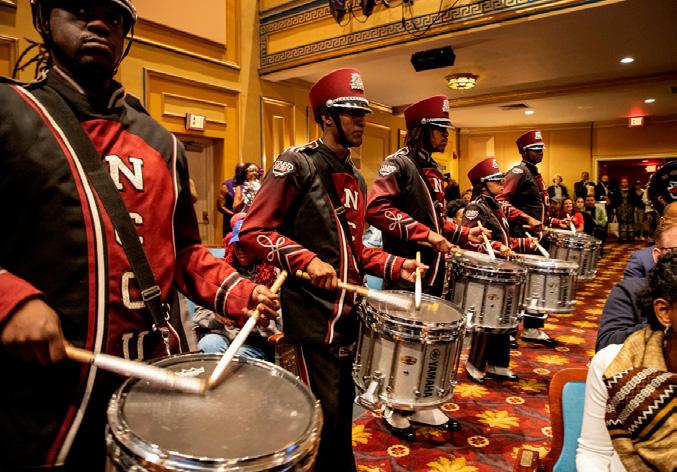
Third-party candidates are striving for change, and votes, this election cycle. How will their presence on North Carolina voters’ ballots impact the election?
BY AVERY SLOAN backtalk@indyweek.com
The Libertarian Party is working to meet people where they are, says Matthew Laszacs, a Libertarian running for a state house district in Wake County in the general election this fall. For him, that means keeping taxes low, deregulating health care at the local level, and lowering costs and regulations for new businesses.
Laszacs—and a record number of Libertarian candidates, as well as candidates from various other parties that aren’t Republican or Democratic—are on Wake voters’ ballots this year. They want to shift voters’ thinking, even if winning an election is an unlikely scenario.
All of these candidates are vying for North Carolina’s unaffiliated voters, who make up the largest voting bloc in North Carolina, with 37.5 percent of registered voters. Democrats make up 31.7 percent, and Republicans make up 29.9 percent. Libertarians make up 0.7 percent of registered voters, while 0.04 percent belong to the Green Party.
“We have reached a point in time where a lot of people are getting very frustrated with the political environment,” Laszacs says.
The intention of running as a third-party candidate also goes beyond hoping to win an election for North Carolina Libertarian Party vice chair Sean Haugh and candidates Guy Meilleur and Mike Ross. Their main focus, they say, is getting the word out about their platforms and helping voters think outside of the two-party system.
The Libertarian Party has 37 candidates on the November ballot in races across the state. Every voter in Wake County has at least seven Libertarian candidates on their ballot; in some precincts, it’s up to 10. The plan was to fill the ballot with Libertarian candidates as much as possi-

ble, says Haugh, who’s running for state agriculture commissioner and formerly worked as a pizza delivery driver in Durham. The Libertarians are united in their desire for parents to have more control over where their children go to school, competitive pay for teachers and more vocational training, and market-based solutions to traffic such as use of autonomous vehicles and relaxed transit regulations.
“That’s just more opportunities for us to present our ideas and ourselves as a complete political party better than some kind of cult of ideology or personality,” Haugh says.
This year, in addition to the Democratic, Republican, and Libertarian Parties, the Green Party, We the People Party, Constitution Party, and Justice for All Party could all appear on North Carolina voters’ ballots. In order to get on the ballot under a new party name, a party needs 13,865 signatures from registered voters and approval from the North Carolina Board of Elections.
But besides getting the many signatures needed, it can be difficult for parties to get on the ballot, as parties also have to ensure their intent is to elect their specific candidates, not hurt other parties’ chances of winning. Earlier this year, the Justice for All Party was blocked from the ballot after it was deemed to have the wrong intent; a judge reversed that decision this week. And even after they do get on the ballot, third parties have not historically been successful in state general elections. No third-party candidate in North Carolina has received more than 4.1 percent of the popular vote in a contested race since 1992, when Libertarian gubernatorial candidate Scott Earle McLaughlin raked in 104,983 votes.
Michael Dublin, a Wake County candidate for the U.S. House of Representatives, is running as a Green Party candidate. Dublin grew up in Raleigh as a Democrat, but over time felt that the party let him down. A self-proclaimed “foot-soldier for justice,” Dublin has always been involved with protests for social issues and says, as a Black man, that the Green Party aligns more with his beliefs.
“I was one of those people that joined the masses of people who in North Carolina became unaffiliated,” Dublin says.
Libertarian candidate Matthew Kordon is running for the state house in District 11 and says he has one election goal: receive enough votes to gain his political opponents’ attention.
“I truly believe that we don’t technically live in a two-party system,” Kordon says. “This is just a mental trap that enough people have told themselves and because of that fact, it’s a vicious cycle. We tell ourselves that a third party can’t win, and therefore the third party can’t win.”
Last month, the North Carolina Board of Elections allowed Robert F. Kennedy Jr.’s We the People Party to appear on voters’ ballots this fall. A judge ruled yesterday against the NC Democratic Party in a lawsuit it brought against the Board of Elections for certifying We the People. As of now, Kennedy is the only candidate the party is running.
The conservative Constitution Party will also have candidates on the ballot. The Constitution Party was recognized in 2018, but in 2021, the Board of Elections decided not to certify it, along with the Green Party, for failing to meet necessary requirements. This year, the board voted to recognize
the party once again after it got the needed signatures, but the board initially voted to postpone that decision, giving the party less time to submit its own candidates and prepare. The Constitution Party will run candidates for governor and lieutenant governor.
Last month, the Board of Elections voted not to allow Cornel West’s Justice for All Party ballot access, citing issues with the group’s collection of the citizen signatures required. The board referenced a video in which Donald Trump supporters appear to collect signatures for Justice for All, telling voters it will help take votes away from President Joe Biden, who was running for reelection at the time. But a federal judge reversed that decision last week in a rebuke to the state board.
That’s not the first time the Board of Elections voted to deny a third party over similar concerns. Two years ago, ahead of midterm elections, the board initially denied the Green Party ballot recognition during an open investigation into fraud and ballot irregularities.
Dublin, one of three candidates the NC Green Party is running this year, says he tried to run in 2022—but after the party struggled to get certification, it decided to only run two candidates, and Dublin wasn’t one of them. This year, Dublin is looking to make a difference, either in office or with his campaign.
“My goal is to win,” Dublin says. “Secondarily, my goal is to help grow the Green Party, spread the word, and get more, hopefully younger, people to come into the party. If I don’t win, [I want] just to get the message out that there is an alternative, there is another way to do this.”
Ross, a Libertarian candidate for governor, says he does not think the board’s past decisions to exclude parties had the people of North Carolina’s best interests in mind.
“That’s three parties that a partisan board in Raleigh basically disenfranchised and took away all the work of all of their volunteers who are out there collecting signatures,” Ross says. “That’s actually something that, in the long run, I hope, is going to move politics in the direction of people-first politics, as opposed to these special-interest-first politics that we have now.”
Meilleur, a Libertarian candidate for the U.S. House of Representatives’ District 4, says that in a previous election the number of votes he received was more than the difference between the Republican and Democratic candidates, but he doesn’t really think his votes would have changed the outcome—nor was that why he ran, he says.
“I would joke to the Democratic candidate who won that I was a spoiler,” Meilleur says. “But I don’t know where more votes
would come from, so I don’t see that as a primary goal.”
The spoiler effect is a theory that voting for a candidate who is likely to lose can impact the results of an election. It has informed the NC Board of Elections’ decision to allow certain parties onto the ballot in the past.
Asher Hildebrand, a Duke University public policy professor, says third-party candidates, while not new, can have an impact on the local, state, and national levels.
“Given just how narrow the margins of victory in many races, including the presidential race, are expected to be this year, that’s one reason why the presence of third parties on ballots in states like North Carolina feels like such a high-stakes question,” Hildebrand says. “Voting for a third party instead of one of the two major parties could very well decide the race.”
Hildebrand says he doesn’t think any of the third parties on voters’ ballots in North Carolina and around the country “are anywhere close to viable” as real options for voters.
“But they can absolutely play spoiler in the election,” he says.
No matter the intention, Hildebrand says, the power of third-party candidates cannot be overstated. And while the existence of third-party candidates is not new, the current political climate may be pushing people to consider or vote third party at the federal level.
“Many voters today are broadly frustrated with the lack of choice that having only two major parties gives them and maybe uniquely frustrated with the candidates that the two major parties have nominated for president this year,” Hildebrand says.
Bob Drach, Libertarian candidate for state auditor, says that despite people saying in polls that they are fed up with Democratic or Republican candidates, they still don’t, for the most part, end up voting third party. Drach referred to a recent Meredith poll surveying North Carolina residents on voter satisfaction, in which 56.7 percent of people surveyed said they feel a third party is needed to improve government.
“People are lying,” Drach says. “Nobody believes that third-party candidates are going to win.”
One way to steer voters away from so-called spoiler candidates is to make a change to the voting system itself. Hildeb-
rand says other countries—and even some states and municipalities—have used other methods, such as ranked-choice voting. But this is difficult to accomplish in North Carolina as there is not a way for citizens to get specific resolutions directly onto a ballot, leaving voters reliant on partisan legislators to bring the issue up.
“Even when there’s no supermajority in the legislature, elected officials tend to be averse to changing the system that got them elected,” Hildebrand says.
Ranked-choice voting was piloted in 2007 in two North Carolina municipalities, including Cary. But it only lasted for one municipal election cycle because the voting machines used at the time ultimately could not handle ranked-choice voting, meaning that ballots had to be hand-counted. Even with these issues, in exit poll results, twothirds of the 1,629 respondents preferred ranked-choice voting.
Travis Groo, a Libertarian candidate for the state house in Wake County and chair of the Wake Libertarian Party, refers to this pilot and to other states that have introduced ranked-choice voting successfully. Groo says it allows a voter’s true vote and leads to winners having received a true majority vote.
“There’s no harm in trying something new, because it’s not a binary system,” Groo says.
“Sometimes you have multiple candidates, sometimes the voters like the third-party candidate maybe as their second choice, and then they can put third choice for the other people. So I mean it, it just works out.
So I’m a big fan of it.”
A ranked-choice voting system is one alternative Ross also agrees with and says, in a perfect world, he would one day like to see an all-write-in ballot.
“I feel like everything we have that’s bad is because we’ve had these two parties consistently giving us bad policy from the top down, and I see that it seems more and more disconnected from what regular people want and need,” Ross says.
Ross says he doesn’t consider himself to be much of a politician but ran for office because he was fed up with the politicians in power and their lack of action. This same idea, he hopes, will eventually motivate others to vote third party—maybe not this election but someday, he says.
“I’m optimistic that if they keep doing these things that are so blatantly partisan, and they keep giving us these bad candidates, that’s how third parties will ultimately win,” Ross says. “We didn’t get to this position overnight. It’s going to take more than one election cycle. … If that protest vote goes and then starts to merge with an actual growth in that party, that’s how you become a real threat.” W

Duke sinologist Carl Rojas translates Chinese luminary Yan Lianke’s words—and his warnings about authoritarianism.
BY GABRIEL BUMP arts@indyweek.com
Most people, in their off hours, enjoy hobbies like knitting, hiking, drinking, or scrolling their phones. Durham’s Carlos Rojas, in his spare time, translates Yan Lianke, China’s perennial Nobel Prize hopeful, into English.
“I started doing Chinese because I wanted to do literary research,” Rojas says from a busy café in Barcelona, on vacation before the semester starts. “I was doing comparative literature. My father was an academic who was both a literature scholar and an author. So I kind of had an image of what that was, but I didn’t see translation as a career path.”
A graduate of Cornell and Columbia, Rojas’s full-time job is at Duke University, where he’s a professor in the Department of Asian and Middle Eastern Studies. He has published three academic books, edited or co-edited roughly a dozen more, and written scores of chapters and articles about his research. He co-edits Sinotheory, an excellent series about modern China, through Duke University Press.
“I’m usually working on something,” Rojas says. “Generally, when I take something on, particularly novels, I usually give myself a year to finish them, since I’m doing them in my spare time.”
Despite his towering scholarly reputation, Rojas is better known, fairly or unfairly, in literary circles for his award-winning translations of Yan Lianke. To date, Rojas has translated 15 of Yan’s books—novels, novellas, lectures, and literary theory, almost all published by Grove/Atlantic Press. This translation work, and his closeness to Yan, is the occasion for our interview, for my interrupting his vacation with more work.
With a writer like Yan, there is no perfect place to start.
Yan has won virtually every prestigious literary award in China, and two of his novels, The Four Books and The Explosion Chronicles, were finalists for the prestigious International Booker Prize. In 2014, he won the Franz Kafka Prize (which has previously gone to the likes of Haruki Murakami and Philip Roth), and between 2019 and 2022 the betting odds of Yan winning the Nobel Prize in Literature fluctuated between 25/1 and 12/1. In 2020, for example, anonymous bookies favored him over Annie Ernaux, Don DeLillo, and Can Xue, his avant-garde compatriot who is the favorite to win this year.
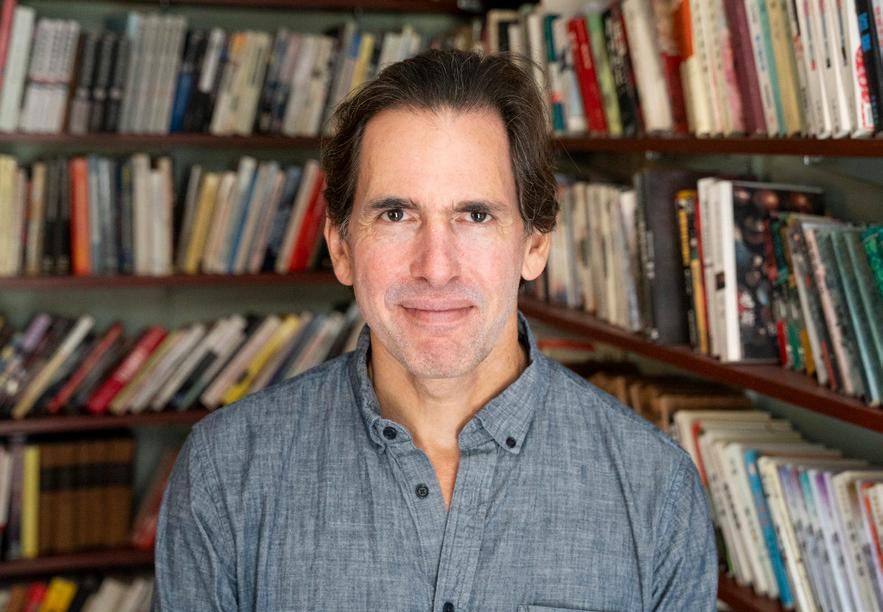
“Some people experience warmth, brightness, and beauty under that ray of light,” Yan continues. “Whereas others, because they are naturally anxious and depressed, feel the cold darkness that lies beneath. As for me, I am one of those people who is fated to experience darkness.”
Another difficulty in finding a place to start with Yan: His versatility. No two books are the same stylistically, even while all of his work, somehow, touches on modern China.
Rojas compares Yan to Ang Lee, the versatile Taiwanese filmmaker with an oeuvre ranging from Crouching Tiger, Hidden Dragon to Hulk and Sense and Sensibility. In his introductory translator’s note for The Day the Sun Died, Rojas explains Yan’s preoccupation with light and darkness motifs as a means to “draw attention to actual communities and social phenomena that remain hidden in the shadows of contemporary China’s rapid growth.”
Rojas quotes in that note a speech Yan gave when he was awarded the Franz Kafka Prize, in which Yan describes powerful modern China as “a bright ray of light illuminating the global East. But beneath this ray of light, there lies a dark shadow.”
That speech and 11 of Yan’s lectures from a rare tour of North American universities in 2014 were translated, collected, and published in April 2024 under the title Sound and Silence as part of Duke University Presses’s Sinotheory series. The lectures serve as a perfect introductory text for readers interested in learning more about Yan’s artistic exploration of China’s shadow realm.
That exploration, however, has led to China’s censorship apparatus banning Yan’s work; in addition to being one of China’s superlative authors, Yan is also one of the most banned.
As Yan’s artistic portal from east to west, Rojas provides insights into Yan’s work, censorship, and creativity under authoritarianism.
“In my initial intro, I made a reference to the Xi Jinping ‘Chinese Dream’ slogan, because it’s about dreams. I was talking about linking it to this other dream tradition in Chinese literature,” Rojas says of his experience writing the translator’s note for
The Day the Sun Died. “A lot of the British reviewers picked up on that, and it’s obvious to me. I think they would have done that anyway even if I hadn’t mentioned it. But I guess he and his agent felt uncomfortable that it was being linked in that way to Xi Jinping. So we deleted that paragraph from the American edition.”
“He’s very careful in his public statements, which is part of the reason why he’s managed to negotiate this tightrope for as long as he has,” Rojas adds. “He’s quite canny. I think personality is maybe a good way of putting it. It is true that he worked for the [People’s Liberation Army] for more than 20 years, in the propaganda arm—and that probably taught him a thing or two.”
In a lecture titled “Fear and Betrayal,” Yan recounts his youth in rural Henan Province, watching the local military cadres, hoping to one day, like them, enjoy “a monthly salary, with abundant food, dignity, and reputation”; how he joined the military at 20 and learned about power’s cruelty.
After publishing his book Lenin’s Kisses, a 2004 satire about a village turning the corpse of Vladimir Lenin into a money-making attraction, he was asked to leave the army. This sense of abandonment by his country placed Yan on the tightrope, balancing a life spent serving his country and opposing it.
“Even as my writings scrutinize, resent, and criticize that reality,” Yan continues in “Fear and Betrayal,” “they also contain a layer of love—like a recently released prisoner who remains nostalgic for prison life. I don’t know what this is. The one thing I do know is that when I am writing—when I’m facing a sheet of paper with pen in hand—I inevitably feel I am a living person, a living person with a certain degree of dignity.”
After I speak with Rojas for about an hour, tracing the difficulties of being an artist in China, we begin discussing similarities between Yan’s experience and the current creeping academic censorship in American universities.
“You’re at UNC,” Rojas tells me. “I’m at Duke. We’re both in North Carolina. North Carolina is not the worst state in terms of academic freedom, but it’s not the best—I mean, the state legislature is basically a clown brigade. Before coming to Duke, I taught at Florida, which wasn’t as bad at that time as it is now, but now you have serious concerns about academic freedom within the Florida university system.”
“We’re in an era,” he says, “where that type of tightrope-walking is not unique to China.”
For a moment, we leave Yan’s China and focus on the threat of far-right political censorship in America.
“We are observing a fairly alarming dip towards authoritarianism in a fairly sizable portion of the electorate,” Rojas says. “I teach a gateway course for students who are majoring in the Department [of Asian and Middle Eastern Studies]. We have fairly wide-ranging discussions. I can’t remember what the topic at the time was, but one of the students, who had spent 12 years living in Saudi Arabia—he’s American—said, ‘Well,
authoritarianism is underrated.’ I was not sure whether or not he was joking. We have a free-form discussion. We had a little backand-forth. I said, ‘Well, let’s take a straw poll. Who agrees with that, that authoritarianism has its benefits?’ And more than half the class raised their hands. And they were being sincere. They were like, ‘If you have the right leaders, benevolent authoritarianism is not a bad thing.’”
What makes Yan’s Sound and Silence such an extraordinary project is its fearlessness. In his lectures for American university audiences, he speaks with honesty and bravery about the unavoidability of political writing in China. The tightrope, in Yan’s comments in America, free from the hovering state apparatus, is abandoned.
“When politics permeates everyone’s daily lives,” Yan says, “authors’ collective avoidance of politics is ridiculous but also tragic. With respect to contemporary China’s complex politics, literature’s avoidance of power and politics makes it possible for power and politics to win without even trying.”
So how does a writer create under authoritarian conditions, when the expectation is to have your work banned in your homeland?
The afterword to Sound and Silence offers some perspective.
“Perhaps someday I’ll write a new volume of confessions,” Yan writes. “Or perhaps I’ll instead be like a bee that is unable to produce honey and instead forever flies around blindly. Who knows? Perhaps the significance of writing and speaking is that they yield a set of riddles and proverbs we use to describe a time that we’ll never be able to crack open, yet it is because of these riddles and proverbs that we must continue to read and write.” W
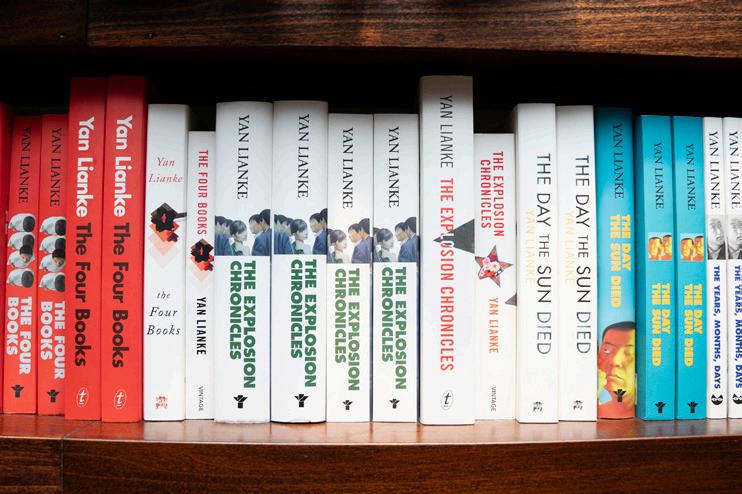

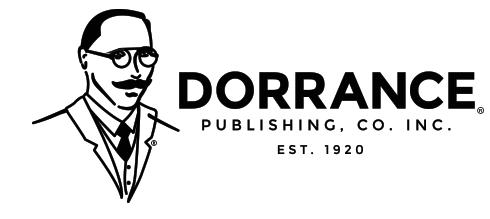

Each year, dozens of young women are selected to attend North Carolina’s shadowy statewide debutante ball. A new podcast tells their stories.
BY ANDREA RICHARDS arts@indyweek.com
Weird is a word that’s been getting a lot of mileage lately, but try this on for size: A Raleigh-based secret society comprising 21-to-35-year-old white men has unknown agents scouring the state of North Carolina every year to find young women from wealthy families. These women are then culled—using vague, largely legacy-based, criteria—into a selective invite list for an expensive ritual that involves a series of parties, a personalized stool, and a final induction ceremony.
The chosen young women, all of whom are 19 years old and white (with one known exception—the first Black woman to participate was in 2017, almost a century after the event’s founding), don wedding dresses and often white gloves, symbolizing their purity and refinement, for the grand event: a moment where they are presented onstage to an assembled crowd, each woman flanked by two escorts, her father and a male friend, both of whom are given military titles for the occasion.
This is the strange ritual of “coming out” at the North Carolina Debutante Ball, an annual event held in Raleigh since 1923— and the only remaining statewide debutante ball in the United States. Out now, a new limited-episode podcast explores the experiences of women who have participated in NC debutante culture.
Podcast host Mary Lambert Moore, who lives in Raleigh and is the author of the novel Sleeping with Patty Hearst, is a debutante herself. She hadn’t thought much about her own 1970 debut at the statewide ball, she says, until she began working on a memoir. The writing process led Moore to revisit her experience, which left lingering questions, both about her participation and
debutante culture itself.
“Why does this event, which is rooted in sexism, racism, and classism, still exist?” Moore says of her questions behind the podcast, which made its own debut this summer. “How do the young women who are debutantes feel about it today—and who is really benefiting from this? The podcast began with my curiosity about these questions, and I feel like I’m beginning to get some answers.”
Recovering Debs begins with the story of Lisa Grabarek, another debutante and the daughter of Wense Grabarek, who served as Durham’s mayor from 1963 to 1971.
Beloved as a public figure who helped the city voluntarily desegregate during the civil rights movement, Wense Grabarek spent much of his long life (he lived to be 100) bringing together the city’s Black and white leaders, businesses, and communities.
Listening to his daughter’s debut story, it is hard to reconcile her father’s public work for equality with his desperate desire for her to participate in an event she objected to because of its exclusionary nature; it is even harder to stomach the tactics by which her parents coerce her into participating.
Without spoiling the episode, Lisa Grabarek’s debut becomes a matter of life and death—or, at least, one manipulated to seem as if it is. Lisa ’s story leaves listeners wondering: What kind of power do these debutante balls hold that they can sway even a man of Wense Grabarek’s moral certitude?
Many cultures around the world celebrate a young woman’s coming-ofage with community celebrations, from quinceañeras and bat mitzvahs to sweet 16s

and Filipino debuts. Black cotillion culture includes debutante balls as well, several of which are held in North Carolina. And there are plenty of debutante balls outside of Raleigh’s statewide ball—many cities have their own smaller debutante balls, such as the one in Durham that Lisa Grabarek describes. But these events all differ from North Carolina’s statewide ball in many ways—and the specificity of this event is what Moore investigates in the rest of what she plans to be an eight-part series.
“I understand that some women love making their debut, and they have a great time,” Moore says. “But one thing I’ve learned is that when we’re talking about the statewide ball, many people, especially the debutantes themselves, don’t know a lot of what is behind it.”
The debutante ball’s colonialist origins hearken back to England, when wealthy families married off their daughters by pre-
senting them to society. The NC state ball, whether or not it has integrated itself (and evidence suggests it barely has), remains tied to this legacy of colonialism and white supremacy in numerous ways. Moore points out, for instance, that there’s always been a higher number of debutantes from eastern North Carolina—the part of the state where the largest population of enslavers were, too.
The driving power behind this statewide ball is a group called the Terpsichorean Club, “comprised of young gentlemen from the Raleigh area,” according to wording repeated in several articles about the ball from the conservative outlet North State Journal. Unlike other debutante balls, which usually benefit a charity or have some alignment with a nonprofit, the Terpsichorean Club appears to function only as a private social club. (The organization did not reply when the INDY reached out for comment.)
For a ritual limited to the very few—there are fewer than 200 debs presented each year at North Carolina’s statewide ball— debutante balls have an outsize presence in pop culture, from Bridgerton to, more locally, the North Carolina–based Amazon show The Summer I Turned Pretty. Deb balls make good backdrops for narrative drama, which seems true in both fiction and life. They are also, unabashedly, about making a display of wealth and securing connections among the elite.
“I know this is far from the biggest issue that our state is facing today, but I think it’s a marker that points to larger issues,” Moore says. “It may be a small way, but this is one way that social and perhaps political power gets perpetuated in our state. In a state that ranks low in economic mobility, this seems to be one link in a chain of the good old boy network.”
Moore’s conversations are cultural critiques, especially in an episode featuring Anna Shelton-Ormond, a former debutante and fifth-year PhD student in sociology who is writing her dissertation on debutante culture. But with or without a guest who wrote a thesis entitled “Hegemonic Processes of Debutantes as Southern Social Royalty,” as Shelton-Ormond did, the podcast deftly peels back the layers of meaning around an event that, wonky as it seems from the outside, retains power both in the state and in the cultural imagination.
Recovering Debs’ cheeky title invokes therapy-speak, the idea of “recovery” as a process by which one works through an addiction or traumatic event. It sets the tone for Moore’s interviews, which are warm and intimate, like friends talking over tea. Recorded in Moore’s home, Recovering Debs is also a family affair: Moore’s husband, Bill Galan, acts as an editor, as does her sister, Carolyn Moore, and Moore’s son, Max, wrote the theme music.
Debuting is mostly a legacy venture—something families do together for generations—so it’s fun that Moore’s family is part of her “recovery,” too. Recovering, in a traditional sense, is returning to health after an illness and getting better. This is what the antiracist movement asks of white people, too: to investigate their role in white supremacy and the ways they have benefited from it and to do better.
Recovering Debs offers an opportunity to follow along as
some of the folks who most benefit from an exclusionary culture unpack the meaning of their participation.
“I do think this is a time when many white women are waking up to white supremacy in its many forms,” Moore says. “In the South, there’s a long history of white women being especially idealized and protected—when the debutante ball started, that was very much a part of the culture. It’s built into the whole deb thing.”
When I ask Moore how long, on average, today’s state debutantes spend preparing for their debut and what the total cost might be, she tallies up various expenses: the cost to attend the ball is $4,600, though that’s just the start—then come dresses, travel, hotel rooms. As she did the math, it struck me that the answer also isn’t quantifiable. Moore’s interviewees all paid other kinds of costs, too. Most trained their entire lives to become debutantes, born into it, like a family business.
As I was listening to the third episode, my 14-year-old daughter barged into my office, interrupting me as kids do. She asked what I was doing and, off the cuff, I said, “I’m listening to a podcast about mothers making their daughters do things they don’t want to do.”
“It should be about mothers letting their daughters do more things they want to do,” she replied, with the quick wit and urgency of a girl who has been creating a PowerPoint on why she should be allowed to get Snapchat.
The difference between what we want for our daughters and what they want can be a chasm—this is true whether or not you’re a debutante. I’ve never been economically
or culturally near debut culture, so participation was never asked of me, but I do remember feeling my parents’ heavy disappointment when I refused to attend church youth group.
Back then, I felt their longing for me to be more compliant. Now that I’m on the flip side of it, I understand that longing better. I’ve wanted my kids to like museums more. I’ve pressured them to play piano or to go to dinner with people they’d rather not. I’ve asked them to grin and bear something, no doubt, that I shouldn’t. Parents make mistakes. Sometimes they realize it and recover; sometimes they don’t and their children must forge ahead with recovery on their own.
As November looms on the horizon, with abortion rights on the ballot accompanied by a surge of conservative orthodoxy about women’s roles, it’s clear that the past is not quite so past. The complexity with which Moore and her guests consider the stakes of their participation in what may seem to be a frivolous event is a reminder that traditions have teeth. That the personal is also, always, political. That the strength behind the state deb ball goes beyond whatever small group of men is running it to include far-reaching systems of power and ideology.
Because getting your daughter to debut by offering her a trip anywhere in the world (as one deb recounts on the podcast) isn’t just a funny bribe; it’s teaching her that free will has a price tag and participation can be bought.
It’s telling her that upholding the status quo is more important than her feelings or morals. It’s rebuilding a racist, classist system of exclusion upheld by nimble bodies in white dresses, who might not have to “Texas Dip” but still have to contort themselves into positions they don’t want to hold. In episode 2 of Recovering Debs, Lisa Grabarek describes the discomfort she felt every time she saw the two framed photos from her debutante ball that hung in her parents’ home.








She tells her father, later in life, how and why these images disturb her, detailing the pain and shame she’s held on to in the years since. She thinks he will surely remove the photos, now that he knows. He doesn’t. After her parents die, she takes the frames down, stomps the glass, and tears the photos to pieces. It’s an act of recovery. W
The INDY is hiring an editor in chief
The editor in chief role checks all the boxes: amazing colleagues, an invigorating work environment, a storied history of producing hard-hitting news, and the chance to shape INDY’s future.

tolearn more









STAGE
Death of Cochise: A New Work Featuring Dasan Ahanu and Bluz 7 p.m. The Carolina Theatre, Durham.
PAGE
Intro to Memoir 6 p.m. Golden Fig Books, Carrboro.
SCREEN
Flashback Flicks: 2024
Summer Outdoor Movie Series: Moonstruck 8 p.m. Washington Duke Inn, Durham.
MUSIC
River Whyless 8 p.m. Cat’s Cradle, Carrboro.
Viv & Riley / Palmyra 8 p.m. The Pour House Music Hall, Raleigh.
PAGE
Silent Book Club
6 p.m. Letters Community Bookshop, Durham.
COMMUNITY
Guide-Supported Canoeing, Kayaking, and Standup Paddleboarding the Lower Eno at Falls Lake 9 a.m. Eno River Boat Launch, Durham.
8/23
8/24
Adithya Vaidhyan Quartet 7:30 p.m. Sharp 9 Gallery, Durham.
Kelly McFarling / Scott Hirsch 7:30 p.m. The Pinhook, Durham.
Rhonda Robichaux & Meaux-NOLA Blues Soul Funk 5 p.m. Succotash Durham, Durham.
Washed Out 8 p.m Cat’s Cradle, Carrboro.
Cyrano presented by Blue Box Theatre Co. 7 p.m. The Honeysuckle Tea House, Chapel Hill.

Dusty Slay: The Night Shift Tour 7 p.m. Martin Marietta Center for the Performing Arts, Raleigh.
Hush Hush: Comedy Based on Secrets 9 p.m. Mettlesome Theater, Durham.
A Kid Like Jake 7:30 p.m. Burning Coal Theatre Company, Raleigh.
Paperhand Puppet Intervention presents Earth and Sky 6:30 p.m. The Forest Theatre, Chapel Hill.
PAGE
Rooftop Storytime with Pierce Freelon 10 a.m. The Willard Rooftop Lounge, Raleigh.
Adulting: An Early Dance Party 7 p.m. Rubies on Five Points, Durham.
Chrishawn Darby Quartet 7:30 p.m. Sharp 9 Gallery, Durham.
Conway the Machine 8 p.m. Cat’s Cradle, Carrboro.
Gable Price and Friends 9 p.m. Motorco Music Hall, Durham.
Hallpass & By George / Bell Tower Blues 8 p.m. Lincoln Theatre, Raleigh.
HOUSE OF BLACK DANCE NIGHT 10 p.m. The Pinhook, Durham.

The most recognized award throughout the Triangle is back for 2024 — next up:
Vote your favorite Orange and Chatham County bar, veterinarian, bookshop, museum—whatever it may be, there are over 100 categories in which you can profess your favorite Orange and Chatham County treasures.
ORANGE AND CHATHAM COUNTY VOTING IS OPEN AUG 26 - SEPT 13

8/24
Megayacht / The BQs 6:30 p.m. Huron Stage Music Venue, Durham.
Museum Park Concerts for Kids: Pierce Freelon 11 a.m.
Joseph M. Bryan Jr. Theater in the Museum Park, Raleigh.
The Otis Kings—Chicago Blues 5 p.m. Succotash Durham, Durham.
Renaissance Disko 10 p.m. Rubies on Five Points, Durham.
Impractical Jokers 5 p.m. DPAC, Durham.
Friends of the Chapel Hill Library Big Book Sale 10 a.m. Chapel Hill Library, Chapel Hill.
ART
Artist Talk: Ben Bridgers Roadside Attractions 4 p.m. Craven Allen Gallery House of Frames, Durham.
Emily K Center Cornhole Tournament 10 a.m. Emily K Center, Durham.
Lazy Daze Arts and Crafts Festival 9 a.m. Cary Town Hall, Cary.
Packapalooza™ 2 p.m. Hillsborough Street at NC State University, Raleigh.
8/25 MON 8/26
Live Jazz with Joseph Silvers and Hunter McDermut 11 a.m. Lanza’s Cafe, Carrboro.
School of Rock Chapel Hill’s End of Season Showcase 11 a.m. Cat’s Cradle Back Room, Carrboro.
Superbloom Comedy Show with Billy Prinsell 8 p.m. The Pour House Music Hall and Record Shop, Raleigh.
Political Prisoner & Prison Rebel Letter Writing 12 p.m. The Pinhook, Durham.

Listen as Ben Bridgers
TUES 8/27
Coheed and Cambria 8 p.m. The Ritz, Raleigh.
COMMUNITY
Maker Mondays at DSSOLVR Durham 6:30 p.m. DSSOLVR, Durham.
Bush with Jerry Cantrell & Candlebox—Loaded: The Greatest Hits Tour 6 p.m. Red Hat Amphitheater, Raleigh.
Cannons: Heartbeat Highway Tour 8 p.m. Cat’s Cradle, Carrboro.
NCJRO 7:30 p.m. Sharp 9 Gallery, Durham.
PAGE
Intro to Creative Writing with the Redbud Writing Project 6 p.m. So & So Books, Raleigh.
Julie Kliegman presents Mind Game, with Lindsay Gibbs 5:30 p.m. Flyleaf Books, Chapel Hill.
8/29
MUSIC
Barefoot Modern 8 p.m. Cat’s Cradle Back Room, Carrboro.
Bedrumor / Hiding Places 8 p.m. The Pinhook, Durham.
Steve Earle 8 p.m. The Carolina Theatre, Durham.
PAGE
adrienne maree brown presents Loving Corrections, with Dr. Tressie McMillan Cottom 6 p.m. Flyleaf Books, Chapel Hill.
Hello Down There 6:30 p.m. Letters Community Bookshop, Durham.
COMMUNITY
Conversation about Mental Health ft J.Locke 5:30 p.m. Southeast Regional Library, Garner.
Fall Candle Making Workshop with Usu Company Candles 6:30 p.m. The Durham Hotel, Durham.
Flower Crown Workshop with TG Floristry 7 p.m. The Willard Rooftop Lounge, Raleigh.
MUSIC
Childish Gambino / Willow 8 p.m. PNC Arena, Raleigh.
DJ Dance Party 10 p.m. Rubies on Five Points, Durham.
Dyke Night 9 p.m. Cat’s Cradle Back Room, Carrboro.
Eric Williams Quintet 7:30 p.m. Sharp 9 Gallery, Durham.
Final Friday with Retro Rhythm 5 p.m. Downtown Cary Park, Cary.
NCMA presents PJ Morton and Avery Sunshine with the African American Cultural Festival of Raleigh and Wake County 7:30 p.m. Joseph M. Bryan Jr. Theater in the Museum Park, Raleigh.
Studio 54 Disco Party!! 10 p.m. The Pinhook, Durham.
MUSIC
I Love the ’80s and ’90s “Nike vs. Adidas” Party, featuring “The Mash Out King” DJ Skillz 10 p.m. Lincoln Theatre, Raleigh.
Jim Ketch Swingtet 7:30 p.m. Sharp 9 Gallery, Durham.
Les Trois Chats—Hot Club Jazz 5 p.m. Succotash Durham, Durham.
PARADOX: A ’90s Rave Experience 9 p.m. The Fruit, Durham.
PERREO PA’ TI 10 p.m. Rubies on Five Points, Durham.
Dealer’s Choice Burlesque 8 p.m. The Pinhook, Durham
PAGE
Beginning Bookbinding: Japanese Stab Binding with Nora Boyle 1 p.m. My Muses Card Shop, Carrboro.
Stone Temple Pilots and +LIVE+: The Jubilee Tour 6:30 p.m. Red Hat Amphitheater, Raleigh.
STAGE
RuPaul’s Drag Race: All Stars LIVE 7:30 p.m. DPAC, Durham.
COMMUNITY
Fruit Flea Market 11 a.m. The Fruit, Durham.
ART
“As Water Falls” Sept. 3-16, Rubenstein Arts Center, Durham.
COMMUNITY
Tenth Parsec Anniversary Beer Release 11 a.m. The Glass Jug Beer Lab, Durham.


To download a pdf of this puzzle or view its solution, visit indyweek.com/puzzles-page
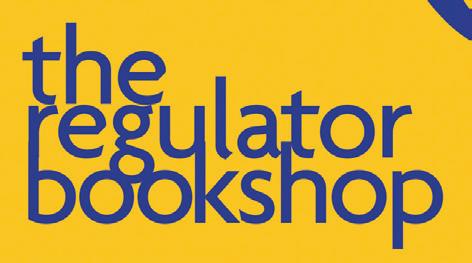

© Puzzles by Pappocom
Difficulty level: HARD
There is really only one rule to Sudoku: Fill in the game board so that the numbers 1 through 9 occur exactly once in each row, column, and 3x3 box. The numbers can appear in any order and diagonals are not considered. Your initial game board will consist of several numbers that are already placed. Those numbers cannot be changed. Your goal is to fill in the empty squares following the simple rule above.

If you’re stumped, find the answer keys for these puzzles and archives of previous puzzles (and their solutions) at indyweek.com/puzzles-page or scan this QR code for a link. Best of luck, and have fun!

Teleflex Medical seeks a Configuration Management Specialist (IPN Mgt. Team) (CMSDON) in Morrisville, NC. Manage all internal part number (IPN) relevant aspects in our supply chain, including forecasting, open transaction data, & ship control records by implementation of new IPNs change management, including phase in & out. Reqs MS+1 yr rltd exp. Email resume to tfxjobs@teleflex.com. Must ref job title & code in the subj line.
Java Full Stack Developer (Pundit, Inc., Cary, NC) Analyze & understand funct., bus. & syst. reqmts. Dvlp s/ware apps using HTML, JavaScript, & CSS. Reqmts: Master’s or foreign equiv. in Comp. Sci., Mgmt Inf. Syst. or rltd field. Must have 1 yr of exp in the position offered or rltd occupation working as a Java Dvlper. Must have 1 yr of exp in: Using web client-side technologies incl HTML, JavaScript, & CSS; Debugging the enterprise architectural patterns incl JavaScript framework; Using relational d/ base concepts to interface w/ Postgres; Selecting the appropriate AWS service based on computer, data, or security reqmts; Using the AWS service APIs, AWS CLI, & SDKs to dvlp applications on various AWS components; Using a CI/CD pipeline to deploy applications on AWS; Working w/ Version Control systems SVN & GIT; & Using s/ ware containerization platforms incl Docker & container orchestration tools. May travel & relocate to various unanticipated sites throughout the U.S. Email Resume to dave@punditinc.com
DevSecOps Engineer
DevSecOps Engineer, F/T at Truist (Raleigh, NC) Architect, build, & maintain CI/CD framework services for existing, & new, s/ware applications. Build & maintain the automation & streamlining of s/ware delivery & operations for new or existing s/ware applications through advanced proficiency & subject matter expertise in vendor tools in the DevOps lifecycle incl. Must have Bach’s deg in Comp Sci, Comp Engg, Electrical/Electronic Engg, or rltd tech’l field + 5 yrs of progressive exp in s/ ware engg or IT positions performing/utilizing w/ the following: Azure technologies, incl backup & restore, ASR, N/work, NSG, troubleshooting & operational logging; Azure network dsgn incl NSG, Gateway, Firewalls, Subnets, Vnets; knowl of azure security constructs; supporting production Azure deployments; Azure coding technologies: CLI, Powershell, & ARM; Terraform deployments using Azure DevOps; working w/ teams to deliver complete azure solutions (security, operations, engg, application team); & Azure cloud. In the alternative, employer will accept a Master’s deg in Comp Sci, Comp Engg, Electrical/Electronic Engg or related tech’l field + 3 yrs of exp in s/ware engg or IT positions performing the aforementioned. Must have 2 yrs of exp in a role in which the primary responsibility is DevOps Engg or the dvlpmt, maintenance, & support of CI/CD pipelines. Position may be eligible to work hybrid/remotely but is based out of & reports to Truist offices in Raleigh, NC. Must be available to travel to Raleigh, NC regularly for meetings & reviews w/ manager & project teams w/in 24-hrs’ notice. Apply online (https://careers.truist.com/) or email resume to: Paige.Whitesell@Truist.com. (Ref Job# R0091423)
SAS Institute Inc. seeks Sr. Research Statistician Developer in Cary, NC to be responsible for developing high-quality statistical software by designing, prgming, testing & documenting code. Reqs: PhD in Stats, Biostats, App Math, Comp Sci, Ops Research, or related. Experience in skills may be gained during grad curriculum. May work remotely pursuant to SAS’ Flexible Work Prgm. For full reqs & to apply visit www.sas.com/careers & reference Job # 2024-36575.

08/07/24 CROSSWORD SOLUTION
